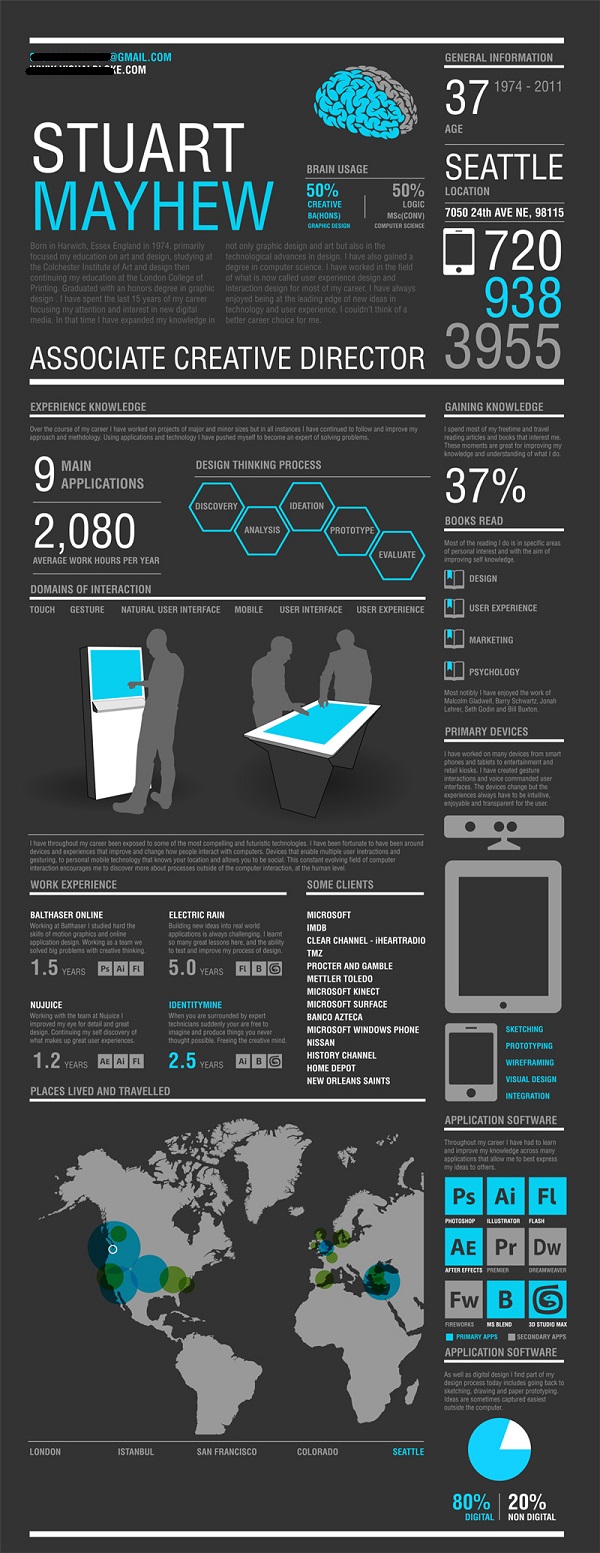There’s no question: You’re far more interesting than your resume lets on.
You have an A+ work ethic, an impressive portfolio of skills, and an epic list of accomplishments to your name. You make scintillating water cooler conversation, to boot. Everyone who knows you knows that you’re at the cutting edge of your field.
So why are you still sending out resumes that look not so different from the ones your mom and dad sent out 30 years ago?
Text-only resumes are yesterday’s news. The infographic or visual resume—which uses charts, icons, and other graphic design elements to show vs. tell a person’s professional story—is the new darling of the recruiting world.
A picture is, after all, worth 1,000 words.
Check out the best-of-class visual resumes below for tricks of the trade, then see “This new kind of resume could help you get hired” to learn more about the trend.
1. Pull out some numbers
Highlighting numerals—as Stuart Mayhew did below with years at each company, hours worked, applications known—makes the standard resume info more quickly digestible for a recruiter who’s short on time.

2. Display your sense of humor
You won’t get hired solely for your ability to make someone laugh, but emphasizing something a little lighter—like Tina’s icon about coffee or her note about Comic Sans—helps you convey that you won’t be a wallflower at the office happy hour.

3. Showcase your skills
The part of your resume that says what special talents you bring to the table may not seem immediately graphical, but as Chris Rowe’s resume below and others in this list show, there are many creative ways to break those down.

4. Make words into art
Text doesn’t have to be boring. Playing with the fonts, sizes, boldness, and kerning can help turn something wordy into something purdy.

5. Use icons to become iconic
Rather than relying on charts and graphs, Matthew Hall interspersed simple but lively images in his resume to get the point of each section across quickly.





